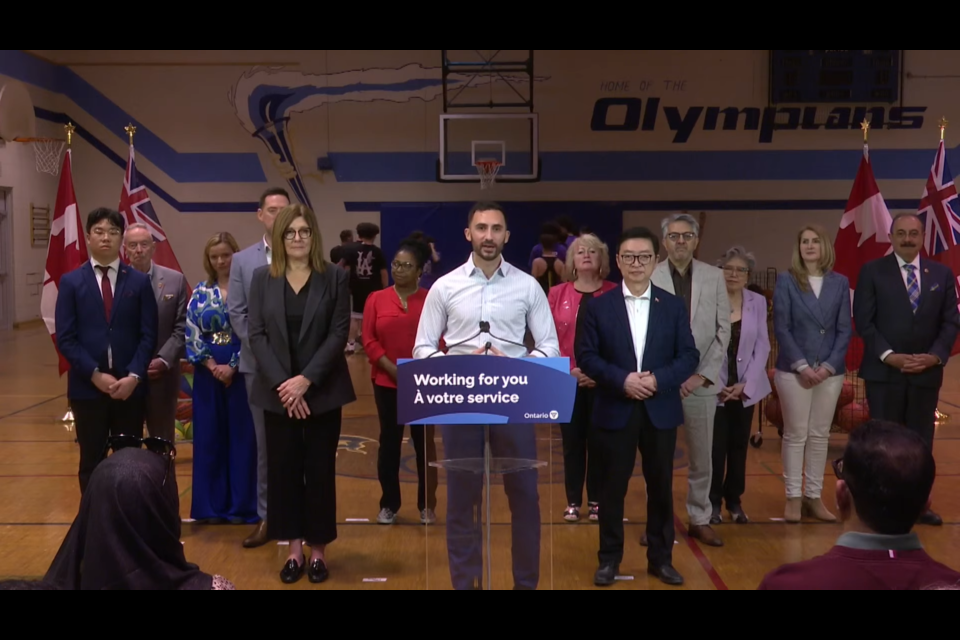Ontario Minister of Education Stephen Lecce announced stricter standards on vaping and cell phone use in Ontario schools today (April 28) in Toronto.
The changes, which are planned to be implemented this fall, are meant to standardize processes and punishment across Ontario school boards for students who are repeatedly distracted by cell phone usage during class time as well as a total ban on vaping on school property for all students.
“We need consistency, we need rigour in our schools, and we need to restore safety,” Lecce said. “Too many kids can't focus because of the distractions in schools. We need schools to go back to the basics.”
The new regulations aim to give teachers and schools more power to take students' cell phones away from them for the duration of a class if they are caught using them, while repeated offences can result in suspension. The rules will apply to students from kindergarten to Grade 12.
The province will also be requiring all publicly funded school boards to block access to social media across all school networks, and schools can also comment on a student’s ‘distraction levels’ on report cards.
Vapes are to be banned across all schools as well, and schools will be required to contact the parents of any student found in possession of a vape. It has been illegal to sell or supply vapes to individuals under 19 in Ontario since 2017.
The province also plans to invest $30 million to install vape detectors in school bathrooms and other areas that students may be using to vape unseen. An additional $17.5 million will also be invested into student mental health and well-being to assist any student struggling with addiction.
While many of these rules regulations already exist across Ontario, every schoolboard was enforcing the rules in different ways.
“Some boards had developed strong policies and many had developed policies that led us to the place we are today, with high rates of vaping and cell phone distractions,” Lecce said. “The fundamental difference in [the changes] is the policy the province is implementing with consistency in the application in the enforcement and the educational component.”
The province has stated that exceptions will be built into the new policies for students with special educational needs and health problems, such as students with diabetes.
